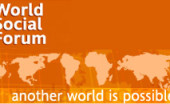Molly Minturn - My family is heartbroken to share that my father died in surgery on Monday, Feb. 10. It…
Wednesday Night #1324 – Postscript: China & Africa
Written by Diana Thebaud Nicholson // July 18, 2007 // Africa, China, Wednesday Nights // 1 Comment
Hope, Concern Greet China’s Growing Prominence
Inter Press Service (Johannesburg)
23 July 2007
By Michael Deibert
While China’s growing trade and investment flows to Africa have sparked a sometimes contentious debate with the United States and Europe over who has the continent’s best interests at heart, a closer look at the dynamic developing reveals a political landscape where the rhetoric is rarely in line with the reality, observers say.
When a recent World Bank report revealed that trade between Africa, the European Union (EU) and the U.S. is nearly equalled by that between Africa and Asia, a closer look at the numbers brought the picture of China’s involvement in Africa into even starker relief.
African exports to China grew 48 percent annually between 1999 and 2004, with 10 percent of all sub-Saharan exports now destined for the Asian behemoth. Likewise, as a whole, over the last five years Asian exports to Africa increased at an annual rate of 18 percent, higher than that of any other region, including the EU.
China’s deepening involvement in Africa has been driven by its domestic demand for the natural resources and raw materials that are needed to support its population of 1.3 billion and a booming economy — the country has the second-largest economy after the U.S. and the world’s largest current account surplus nearly 180 billion dollars.
It is a development that is profoundly — and, many believe, permanently — changing the nature of Africa’s relationship with the former colonial powers of the EU, and re-writing the nature of African realpolitik. But at present the EU remains Africa’s largest trading partner with trade totalling more than 200 billion euros in 2006.
“I think it’s going to dramatically change the diplomatic and economic landscape,” says Mamadou Diouf, a noted West African scholar who directs the Institute for African Studies at Columbia University. “In the previous world defined by the Cold War, the pressure was much more ideological, Africa had to align itself ideologically rather than come up with its own agenda. Today they are negotiating between different choices and possibilities.”
The seeming lack of conditionality to China’s aid, such as the absence of any stipulation based on anti-corruption measures, as well as the speed with which it is dispersed have both proved attractive to African governments with varying degrees of accountability and respect for human rights.
“China’s zero-condition policy is appealing to a country which doesn’t have very transparent reporting and budgetary mechanisms,” says Katherine Constabile, an Africa analyst with the New York-based Eurasia Group, a global political risk consultancy.
Among the more controversial aspects of China’s involvement in Africa is that of the PetroChina company, a subsidiary of the state-controlled China National Petroleum Corporation, which owns a major stake in Sudan’s national oil consortia, and maintains extensive operations there.
To help meet its demand for fuel, China purchased more than half of Sudan’s oil exports in 2006. Critics charge that profits from these sales have enabled the Khartoum government to buy weapons with which to continue its military operations — both directly and by proxy — in the nation’s Darfur region.
The Sudanese military and government-aligned Janjaweed militia forces stand accused here of carrying out war crimes against the area’s civilian population. The chaos engulfing Darfur has claimed an estimated 200,000 lives, mainly civilians, since 2003, according to a study published in the journal Science.
Some in Africa, though, despite being skeptical of China’s motives, see a certain amount of selective memory in the West’s position.
“Both the U.S. and Western Europe, particularly over the last two decades, have linked their involvement in Africa — whether trade or other — with demands for reform or better governance and a more democratic substance,” says Ayesha Kajee, programme director with the International Human Rights Exchange (IHRE) at the University of the Witwatersrand in Johannesburg, South Africa.
“But elections have come to represent the be all and end all, with very few (African) governments paying more than lip service to them,” Kajee says. “When it comes to the institutions of democracy, and instituting democratic practice in society, the U.S. and Europe haven’t been half as vocal.”
Western powers, even in recent years, have appeared to be willing to turn a forgiving eye to questionable regimes when the moment suited them.
In 2002, U.S. President George W. Bush invited Ethiopian President Meles Zenawi to the White House, and then conducted a high-profile meeting with Ugandan President Yoweri Museveni outside of Kampala in 2003. Both men had also enjoyed warm relations with the administration of former president Bill Clinton.
Zenawi’s government has been accused of massacring nearly 200 protestors around the Ethiopian capital Addis Ababa in violent upheaval following disputed May 2005 elections, and routinely jails opposition politicians. He has been named ‘Predator of Press Freedom’ by the journalist’s advocacy group Reporters Sans Frontières.
During elections in 2005, Museveni arrested Uganda’s main opposition leader, Kizza Besigye, and posted heavily-armed government partisans around the court where his bail hearing was being held.
At the same time, the EU seems willing to engage in a bit of its own non-conditionality to adapt its Africa involvement to this new reality with the announcement that it will invite Zimbabwe’s President Robert Mugabe to an EU-Africa summit scheduled in Lisbon this coming December, despite Mugabe being the subject of an EU travel ban.
Mugabe stands accused of gross human rights abuses and economic mismanagement in his 27-year rule of his country, once one of Africa’s richest. Zimbabwe’s inflation is now believed by unofficial estimates to measure around 15,000 percent. A recent report by the New York-based group Human Rights Watch concluded that “police routinely arrest and detain political opponents and government critics, and then abuse them in custody.”
The African Union (AU), a body of 53 African states formed in 2001 with the ostensible aim of integrating the region’s currency and its defence forces, as well as promoting human rights, had threatened to boycott the summit if Mugabe was excluded.
Stepping into this landscape of grey area and compromise, Chinese President Hu Jintao has visited 17 countries on the continent during the last year, making him the most frequent visitor among heads of state.
“The EU knows how much influence China has in Africa, they know that it’s profound and that it has implications on EU-Africa relations,” says Veronika Tywuschik, an academic researcher based in the Netherlands currently exploring Chinese-African relations.
In a June report ‘From Cairo to Lisbon — The EU-Africa Strategic Partnership’, the European Commission, which serves as the executive body of the European Union, called for a reassessment of EU-Africa relations based on “a genuine partnership of equals.”
The report went on to say that the new understanding between the two regions should “promote peace and security, governance and human rights, trade and regional and continental integration in Africa” as well as to “facilitate and promote a broad-based and wide-ranging people-centred partnership for all people in Africa and Europe.”
In an almost musical corollary, though, in late June, China’s state-controlled China Development Bank commenced the first phase, measuring a billion dollars, of its 5-billion-dollar China-Africa Development Fund.
Belying China’s supposed carte blanche to its African counterparts, this aid in fact comes with many strings attached, though none, perhaps attractively for some governments, related to human rights or anti-corruption.
The conditions include that the aid’s availability will be restricted solely to investment in Chinese enterprises and projects in Africa, and that 70 percent of the contracts be set aside for Chinese companies, with the rest going to African businesses, many already working with Chinese enterprises.
Despite all the sound and fury, some Africa observers say, what we may be witnessing is the same old networking simply presented in a new wrapping.
“By and large, when you look at foreign interest in Africa, it is still directly linked to geo-strategic concerns,” says Human Rights Exchange’s Kajee.
Copyright © 2007 Inter Press Service. All rights reserved. Distributed by AllAfrica Global Media (allAfrica.com).




One Comment on "Wednesday Night #1324 – Postscript: China & Africa"
China’s involvement in Africa … I do agree has had quite an impact on the continent, some good and some bad. The good is obviously the money that it has brought into what are generally poor countries, but China?s general attitude
towards human rights has unsurprisingly remained the same. What is overlooked in the articles is the pseudo- stability in the areas where
the Chinese are involved. The biggest concern is where the oil is
coming from. The oil pool that the Chinese are tapping into in Africa
is actually further below the surface then the oil pools in the Middle
East, and is fed by them … the Chinese are essentially getting Saudi oil at a discount …. (RS)